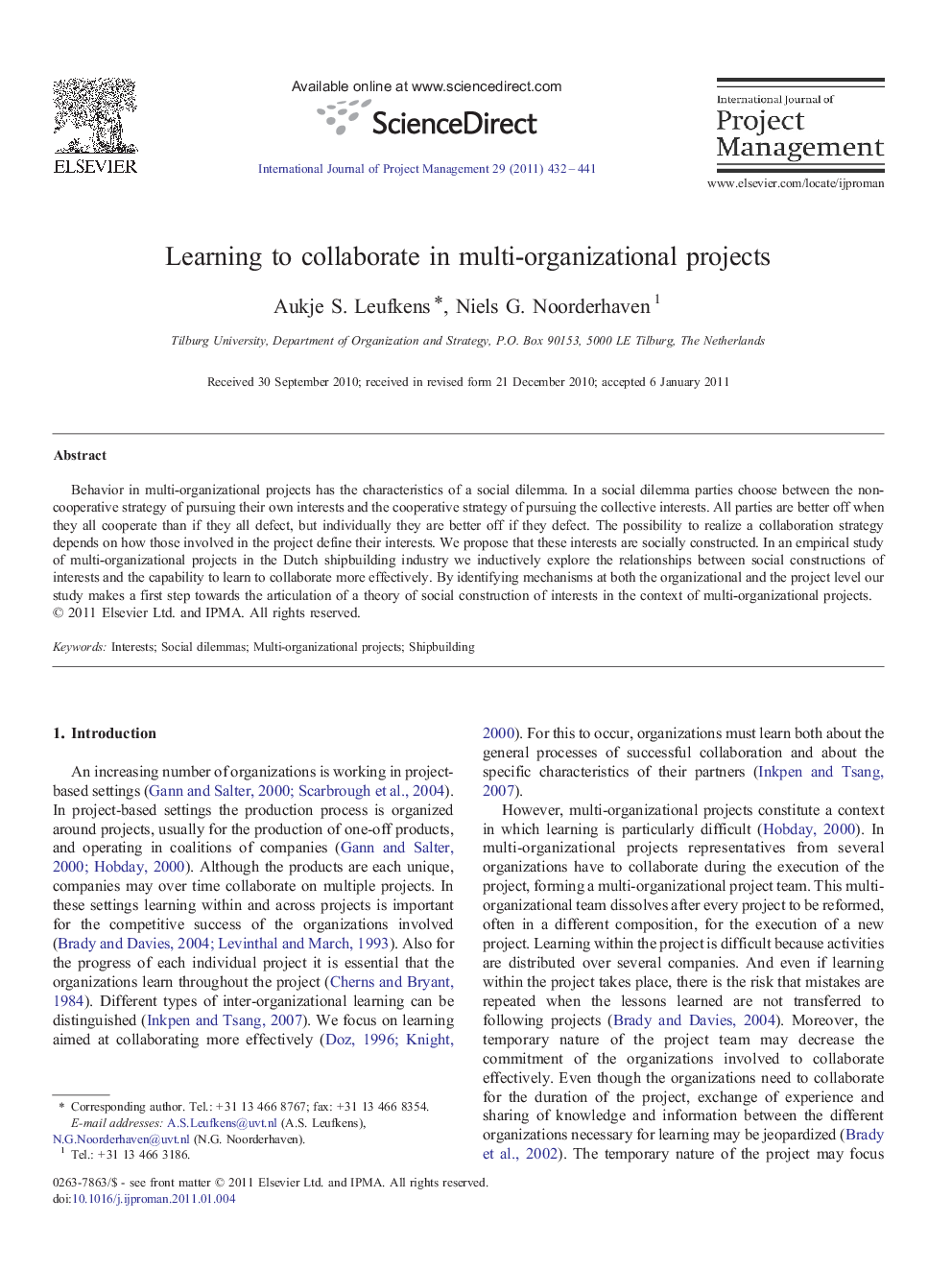| Article ID | Journal | Published Year | Pages | File Type |
|---|---|---|---|---|
| 276303 | International Journal of Project Management | 2011 | 10 Pages |
Behavior in multi-organizational projects has the characteristics of a social dilemma. In a social dilemma parties choose between the non-cooperative strategy of pursuing their own interests and the cooperative strategy of pursuing the collective interests. All parties are better off when they all cooperate than if they all defect, but individually they are better off if they defect. The possibility to realize a collaboration strategy depends on how those involved in the project define their interests. We propose that these interests are socially constructed. In an empirical study of multi-organizational projects in the Dutch shipbuilding industry we inductively explore the relationships between social constructions of interests and the capability to learn to collaborate more effectively. By identifying mechanisms at both the organizational and the project level our study makes a first step towards the articulation of a theory of social construction of interests in the context of multi-organizational projects.
Research Highlights► Socially contructed interests influence collaborative behavior of individuals. ► Instructions, observation of others, personal experiences influence interests. ► Social dilemma characteristics apply to multi-organizational projects.
